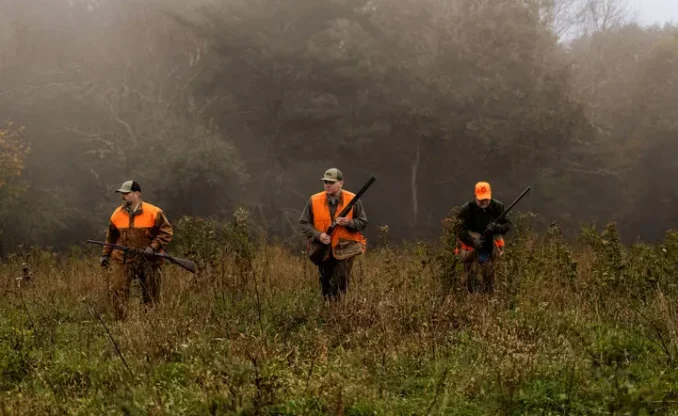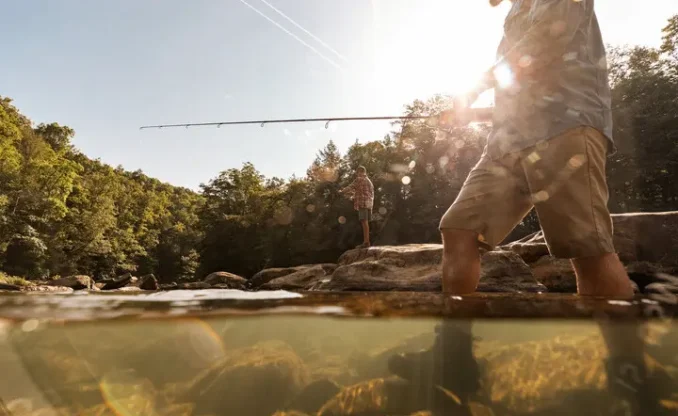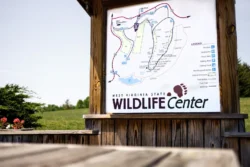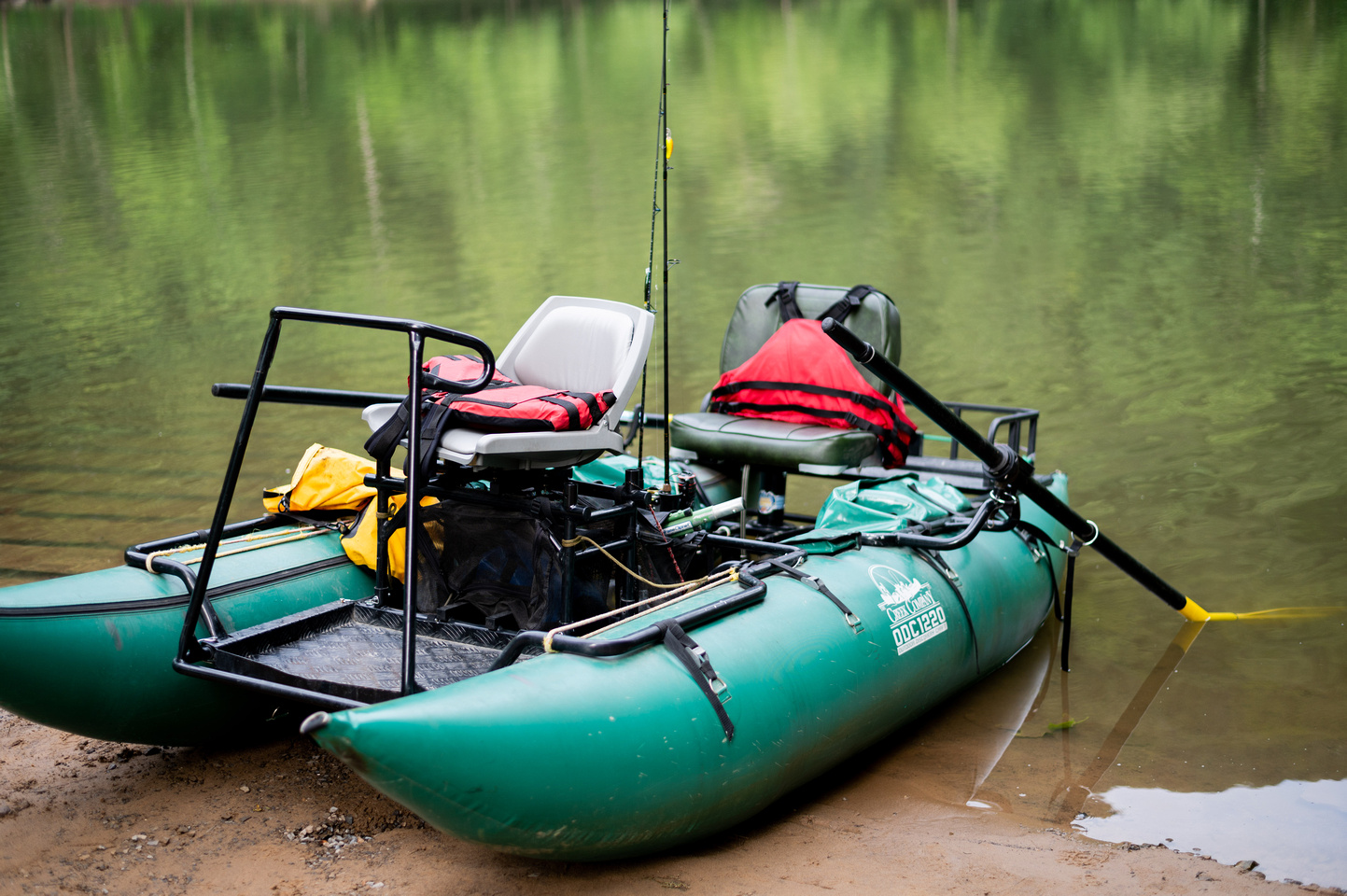There are over 2,000 miles of navigable, fishable streams in West Virginia that comprises over 19,000 surface acres of water. Additionally, there are 21 lakes over 100 acres in size that encompass 20,118 acres of fishable and boatable waters. There are 41 small impoundments covering 1,068 acres and 30 ponds covering 204 acres.
Most of these waters are also available for public boating. Boating is a fun, relaxing outdoor activity that can be enjoyed with family and friends in a variety of ways. From kayaking and canoeing to motorized water sports, a day of boating creates lasting fun among participants.
West Virginia Water Trails
West Virginia offers a series of water trails around the state. A water trail is a route on a stream, river or lake that provides boaters with a recreational, scenic, historical or educational opportunity.
The West Virginia Recreational Trail Authority and the West Virginia Department of Transportation are responsible for designating water trails in West Virginia. Currently, there are 11 approved water trails:
- Cacapon River Water Trail
- Walhonde Water Trail (Coal River System)
- Elk River Water Trail
- Greenbrier River Water Trail
- Guyandotte River Water Trail
- Mill Creek Water Trail
- Ohio River Water Trail
- Summersville Lake Water Trail
- Upper Cheat River Water Trail
- Upper Mon River Water Trail
- West Fork River Water Trail
Boating Safety Practices
Boating Education Requirement
Anyone using a boat must obey boating laws. In West Virginia, anyone born on or after December 31, 1986, must successfully complete a National Association of State Boating Law Administrators (NASBLA)-approved Boater Education Course before operating a motorboat. Contact the WVDNR Law Enforcement Section or view the available boater education course list. Participants can also take the online Boating Education Course.
Personal Flotation Devices (PFD)
Most boating fatalities are the result of a boat capsizing or passenger falling overboard. Nearly 80% of those who died in boating accidents were not wearing PFD.
If you are on the water in a vessel, West Virginia law requires that you have a PFD (life jacket) that is in good condition, properly sized and readily available for each person on board. Any child under the age of 13, including infants, must wear a PFD while the vessel is underway. Vessels 16 feet and over must have a throwable Type IV PFD ring or cushion on board that can be thrown to a person in the water in addition to the previously noted PFDs.
Courtesy on the Boat Ramp
- Boat ramp traffic jams can be prevented if everyone practices common courtesy at the ramp. Be sure you observe these simple courtesies.
- Prepare your vessel for launching or for the drive home well away from the ramp.
- Use at least two experienced people to launch and retrieve the vessel (one to drive the towing vehicle and one to operate the vessel).
- Never block a ramp with an unattended vessel or vehicle.
- Move the vessel away from the launch lane immediately after removing it from the trailer. Return briefly to pick up the vehicle driver once he or she has parked the vehicle and is back at the ramp.
- When retrieving, do not pull your vessel into a launch lane until the towing vehicle is at the ramp. The line is formed by vehicles with trailers, not by vessels in the water. Drop off the vehicle driver, and wait offshore and clear of the ramp until he or she arrives with the trailer.
Learn more about boating safety at www.register-ed.com or take an online course.
Safe Boating Rules
Boating accidents usually result from a collision with another boat or an object in the water such as rocks or pilings. A little boating knowledge, common sense and courtesy could prevent most accidents.
- Don’t operate a boat under the influence of alcohol or drugs.
- Don’t overload the boat.
- Don’t sit on the edge of the boat.
- If you must stand up, do so carefully away from the sides.
- Drive at a safe speed.
- Use navigation lights at night.
- Keep a lookout for other boats and follow the rules of navigation.
- Always let someone know where you are going and when you plan to return.
- Don’t fish during a thunderstorm. Every vessel or watercraft must carry the proper safety equipment. A vessel means every description of watercraft, other than seaplane on the water, used or capable of being used as a means of transportation on water.
- Check the weather conditions before you leave. Lightning, strong wind and high waves create hazardous conditions. If caught on a lake in a strong storm, put all fishing gear in the bottom of the boat, stay low in the boat and get off the water as soon as possible. In high waves, the best way to keep from capsizing is to steer the boat at a slight angle into the waves.
Alcohol and Drugs
Operating a boat under the influence of alcohol or drugs creates the same risks and carries the same penalties as DUI. Intoxication affects your balance, which is already challenged by being in a boat. It also affects your coordination, vision and thinking ability. Alcohol also causes you to lose body heat faster should you fall into the water, increasing the risk of hypothermia. A blood alcohol concentration of 0.08 or above qualifies as legally intoxicated.
COMMERCIAL RIVER TRAFFIC
While boating on the major rivers of West Virginia, always be alert for large commercial vessels. Large vessels always have the right-of-way because of long stopping distances and blind spots around them. Also, turbulent water around the large vessel could capsize a small boat easily. Stay out of danger zones and restricted areas around locks and dams.




